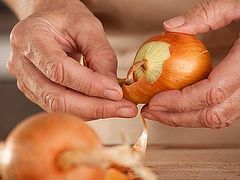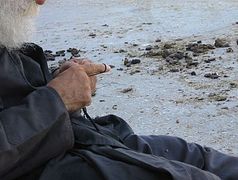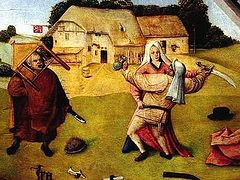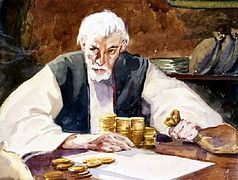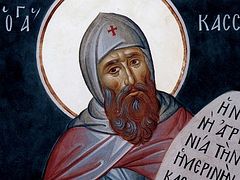Chapter 1.
How our eighth combat is against the spirit of pride, and of its character.
Our eighth and last combat is against the spirit of pride, which evil, although it is the latest in our conflict with our faults and stands last on the list, yet in beginning and in the order of time is the first: an evil beast that is most savage and more dreadful than all the former ones, chiefly trying those who are perfect, and devouring with its dreadful bite those who have almost attained the consummation of virtue.
Chapter 2.
How there are two kinds of pride.
And of this pride there are two kinds: the one, that by which we said that the best of men and spiritually minded ones were troubled; the other, that which assaults even beginners and carnal persons. And though each kind of pride is excited with regard to both God and man by a dangerous elation, yet that first kind more particularly has to do with God; the second refers especially to men. Of the origin of this last and the remedies for it we will by God's help treat as far as possible in the latter part of this book. We now propose to say a few things about that former kind, by which, as I mentioned before, those who are perfect are especially tried.
Chapter 3.
How pride is equally destructive of all virtues.
There is then no other fault which is so destructive of all virtues, and robs and despoils a man of all righteousness and holiness, as this evil of pride, which like some pestilential disease attacks the whole man, and, not content to damage one part or one limb only, injures the entire body by its deadly influence, and endeavors to cast down by a most fatal fall, and destroy those who were already at the top of the tree of the virtues. For every other fault is satisfied within its own bounds and limits, and though it clouds other virtues as well, yet it is in the main directed against one only, and specially attacks and assaults that. And so (to make my meaning clearer) gluttony, i.e., the appetites of the belly and the pleasures of the palate, is destructive of strict temperance: lust stains purity, anger destroys patience: so that sometimes a man who is in bondage to some one sin is not altogether wanting in other virtues: but being simply deprived of that one virtue which in the struggle yields to the vice which is its rival and opposed to it, can to some extent preserve his other virtues: but this one when once it has taken possession of some unfortunate soul, like some most brutal tyrant, when the lofty citadel of the virtues has been taken, utterly destroys and lays waste the whole city; and leveling with the ground of vices the once high walls of saintliness, and confusing them together, it allows no shadow of freedom henceforth to survive in the soul subject to it. And in proportion as it was originally the richer, so now will the yoke of servitude be the severer, through which by its cruel ravages it will strip the soul it has subdued of all its powers of virtue.
Chapter 4.
How by reason of pride Lucifer was turned from an archangel into a devil.
And that we may understand the power of its awful tyranny we see that that angel who, for the greatness of his splendor and beauty was termed Lucifer, was cast out of heaven for no other sin but this, and, pierced with the dart of pride, was hurled down from his grand and exalted position as an angel into hell. If then pride of heart alone was enough to cast down from heaven to earth a power that was so great and adorned with the attributes of such might, the very greatness of his fall shows us with what care we who are surrounded by the weakness of the flesh ought to be on our guard. But we can learn how to avoid the most deadly poison of this evil if we trace out the origin and causes of his fall. For weakness can never be cured, nor the remedies for bad states of health be disclosed unless first their origin and causes are investigated by a wise scrutiny. For as he (viz., Lucifer) was endowed with divine splendor, and shone forth among the other higher powers by the bounty of his Maker, he believed that he had acquired the splendor of that wisdom and the beauty of those powers, with which he was graced by the gift of the Creator, by the might of his own nature, and not by the beneficence of His generosity. And on this account he was puffed up as if he stood in no need of divine assistance in order to continue in this state of purity, and esteemed himself to be like God, as if, like God, he had no need of any one, and trusting in the power of his own will, fancied that through it he could richly supply himself with everything which was necessary for the consummation of virtue or for the perpetuation of perfect bliss. This thought alone was the cause of his first fall. On account of which being forsaken by God, whom he fancied he no longer needed, he suddenly became unstable and tottering, and discovered the weakness of his own nature, and lost the blessedness which he had enjoyed by God's gift. And because he loved the words of ruin, with which he had said, I will ascend into heaven, and the deceitful tongue, with which he had said of himself, I will be like the Most High (Isaiah 14:13-14), and of Adam and Eve, You shall be as gods, therefore shall God destroy him forever and pluck him out and remove him from his dwelling place and his root out of the land of the living. Then the just, when they see his ruin, shall fear, and shall laugh at him and say (what may also be most justly aimed at those who trust that they can obtain the highest good without the protection and assistance of God): Behold the man that made not God his helper, but trusted in the abundance of his riches, and prevailed in his vanity.
Chapter 5.
That incentives to all sins spring from pride.
This is the reason of the first fall, and the starting point of the original malady, which again insinuating itself into the first man, through him who had already been destroyed by it, produced the weaknesses and materials of all faults. For while he believed that by the freedom of his will and by his own efforts he could obtain the glory of Deity, he actually lost that glory which he already possessed through the free gift of the Creator.
Chapter 6.
That the sin of pride is last in the actual order of the combat, but first in time and origin.
And so it is most clearly established by instances and testimonies from Scripture that the mischief of pride, although it comes later in the order of the combat, is yet earlier in origin, and is the beginning of all sins and faults: nor is it (like the other vices) simply fatal to the virtue opposite to it (in this case, humility), but it is also at the same time destructive of all virtues: nor does it only tempt ordinary folk and small people, but chiefly those who already stand on the heights of valour. For thus the prophet speaks of this spirit, His meat is choice. And so the blessed David, although he guarded the recesses of his heart with the utmost care, so that he dared to say to Him from whom the secrets of his conscience were not hid, Lord, my heart is not exalted, nor are my eyes lofty: neither have I walked in great matters, nor in wonderful things above me. If I was not humbly minded; and again, He that works pride shall not dwell in the midst of my house; yet, as he knew how hard is that watchfulness even for those that are perfect, he did not so presume on his own efforts, but prayed to God and implored His help, that he might escape unwounded by the darts of this foe, saying, Let not the foot of pride come to me, for he feared and dreaded falling into that which is said of the proud, viz., God resists the proud; James 4:6 and again: Every one that exalts his heart is unclean before the Lord.
Chapter 7.
That the evil of pride is so great that it rightly has even God Himself as its adversary.
How great is the evil of pride, that it rightly has no angel, nor other virtues opposed to it, but God Himself as its adversary! Since it should be noted that it is never said of those who are entangled in other sins that they have God resisting them; I mean it is not said that God is opposed to the gluttonous, fornicators, passionate, or covetous, but only to the proud. For those sins react only on those who commit them, or seem to be committed against those who share in them, i.e., against other men; but this one has more properly to do with God, and therefore it is especially right that it should have Him opposed to it.
Chapter 8.
How God has destroyed the pride of the devil by the virtue of humility, and various passages in proof of this.
And so God, the Creator and Healer of all, knowing that pride is the cause and fountain head of evils, has been careful to heal opposites with opposites, that those things which were ruined by pride might be restored by humility. For the one says, I will ascend into heaven (Isaiah 14:13); the other, My soul was brought low even to the ground. The one says, And I will be like the most High; the other, Though He was in the form of God, yet He emptied Himself and took the form of a servant, and humbled Himself and became obedient unto death (Philippians 2:6-8). The one says, I will exalt my throne above the stars of God; the other, Learn of me, for I am meek and lowly of heart (Matthew 11:29). The one says, I know not the Lord and will not let Israel go (Exodus 5:2); the other, If I say that I know Him not, I shall be a liar like you: but I know Him, and keep His commandments (John 8:55). The one says, My rivers are mine and I made them; the other: I can do nothing of myself, but my Father who abides in me, He does the works. The one says, All the kingdoms of the world and the glory of them are mine, and to whomsoever I will, I give them (Luke 4:6); the other, Though He were rich yet He became poor, that we through His poverty might be made rich (2 Corinthians 8:9). The one says, As eggs are gathered together which are left, so have I gathered all the earth: and there was none that moved the wing or opened the mouth, or made the least noise (Isaiah 10:14); the other, I have become like a solitary pelican; I watched and became as a sparrow alone upon the roof. The one says, I have dried up with the sole of my foot all the rivers shut up in banks (Isaiah 37:25); the other, Cannot I ask my Father, and He shall presently give me more than twelve legions of angels? (Matthew 26:53). If we look at the reason of our original fall, and the foundations of our salvation, and consider by whom and in what way the latter were laid and the former originated, we may learn, either through the fall of the devil, or through the example of Christ, how to avoid so terrible a death from pride.
Chapter 9.
How we too may overcome pride.
And so we can escape the snare of this most evil spirit, if in the case of every virtue in which we feel that we make progress, we say these words of the Apostle: Not I, but the grace of God with me, and by the grace of God I am what I am (1 Corinthians 15:10); and it is God that works in us both to will and to do of His good pleasure (Philippians 2:13). As the author of our salvation Himself also says: If a man abide in me and I in him, the same bears much fruit; for without me you can do nothing (John 15:5). And Unless the Lord builds the house, they labour in vain that build it. Unless the Lord keeps the city, the watchman wakes but in vain. And Vain is it for you to rise up before light. For it is not of him that wills, nor of him that runs, but of God that has mercy (Romans 9:16).
Chapter 10.
How no one can obtain perfect virtue and the promised bliss by his own strength alone.
For the will and course of no one, however eager and anxious, is sufficiently ready for him, while still enclosed in the flesh which wars against the spirit, to reach so great a prize of perfection, and the palm of uprightness and purity, unless he is protected by the divine compassion, so that he is privileged to attain to that which he greatly desires and to which he runs. For every good gift and every perfect gift is from above, and comes down from the Father of lights (James 1:17). For what do you have which you did not receive? But if you have received it, why do you glory as if you had not received it? (1 Corinthians 4:7).
Chapter 11.
The case of the thief and of David, and of our call in order to illustrate the grace of God.
For if we recall that thief who was by reason of a single confession admitted into paradise (Luke 23:40), we shall feel that he did not acquire such bliss by the merits of his life, but obtained it by the gift of a merciful God. Or if we bear in mind those two grievous and heinous sins of King David, blotted out by one word of penitence (2 Samuel 12:13), we shall see that neither here were the merits of his works sufficient to obtain pardon for so great a sin, but that the grace of God superabounded, as, when the opportunity for true penitence was taken, He removed the whole weight of sins through the full confession of but one word. If we consider also the beginning of the call and salvation of mankind, in which, as the Apostle says, we are saved not of ourselves, nor of our works, but by the gift and grace of God, we can clearly see how the whole of perfection is not of him that wills nor of him that runs, but of God that has mercy, who makes us victorious over our faults, without any merits of works and life on our part to outweigh them, or any effort of our will availing to scale the difficult heights of perfection, or to subdue the flesh which we have to use: since no tortures of this body, and no contrition of heart, can be sufficient for the acquisition of that true chastity of the inner man so as to be able to gain that great virtue of purity (which is innate in the angels alone and indigenous as it were to heaven) merely by human efforts, i.e., without the aid of God: for the performance of everything good flows from His grace, who by multiplying His bounty has granted such lasting bliss, and vast glory to our feeble will and short and petty course of life.
Chapter 12.
That no toil is worthy to be compared with the promised bliss.
For all the long years of this present life disappear when you have regard to the eternity of the future glory: and all our sorrows vanish away in the contemplation of that vast bliss, and like smoke melt away, and come to nothing, and like ashes are no more seen.
Chapter 13.
The teaching of the elders on the method of acquiring purity.
Wherefore it is now time to produce, in the very words in which they hand it down, the opinion of the Fathers; viz., of those who have not painted the way of perfection and its character in high-sounding words, but rather, possessing it in deed and truth, and in the virtue of their spirit, have passed it on by their own experience and sure example. And so they say that no one can be altogether cleansed from carnal sins, unless he has realized that all his labors and efforts are insufficient for so great and perfect an end; and unless, taught, not by the system handed down to him, but by his feelings and virtues and his own experience, he recognizes that it can only be gained by the mercy and assistance of God. For in order to acquire such splendid and lofty prizes of purity and perfection, however great may be the efforts of fastings and vigils and readings and solitude and retirement applied to it, they will not be sufficient to secure it by the merits of the actual efforts and toil. For a man's own efforts and human exertions will never make up for the lack of the divine gift, unless it is granted by divine compassion in answer to his prayer
Chapter 14.
That the help of God is given to those who labor.
Nor do I say this to cast a slight on human efforts, or in the endeavor to discourage any one from his purpose of working and doing his best. But clearly and most earnestly do I lay down, not giving my own opinion, but that of the elders, that perfection cannot possibly be gained without these, but that by these only without the grace of God nobody can ever attain it. For when we say that human efforts cannot of themselves secure it without the aid of God, we thus insist that God's mercy and grace are bestowed only upon those who labor and exert themselves, and are granted (to use the Apostle's expression) to them that will and run, according to that which is sung in the person of God in the eighty-eighth Psalm: I have laid help upon one that is mighty, and have exalted one chosen out of my people. For we say, in accordance with our Savior’s words, that it is given to them that ask, and opened to them that knock and found by them that seek (Matthew 7:7); but that the asking, the seeking, and the knocking on our part are insufficient unless the mercy of God gives what we ask, and opens that at which we knock, and enables us to find that which we seek. For He is at hand to bestow all these things, if only the opportunity is given to Him by our good will. For He desires and looks for our perfection and salvation far more than we do ourselves. And the blessed David knew so well that by his own efforts he could not secure the increase of his work and labor, that he entreated with renewed prayers that he might obtain the direction of his work from the Lord, saying, Direct the work of our hands over us; yea, the work of our hands do you direct; and again: Confirm, O God, what you have wrought in us.
Chapter 15.
From whom we can learn the way of perfection.
And so, if we wish in very deed and truth to attain to the crown of virtues, we ought to listen to those teachers and guides who, not dreaming with pompous declamations, but learning by act and experience, are able to teach us as well, and direct us likewise, and show us the road by which we may arrive at it by a most sure pathway; and who also testify that they have themselves reached it by faith rather than by any merits of their efforts. And further, the purity of heart that they have acquired has taught them this above all; viz., to recognize more and more that they are burdened with sin (for their compunction for their faults increases day by day in proportion as their purity of soul advances), and to sigh continually from the bottom of their heart because they see that they cannot possibly avoid the spots and blemishes of those faults which are ingrained in them through the countless triflings of the thoughts. And therefore they declared that they looked for the reward of the future life, not from the merits of their works, but from the mercy of the Lord, taking no credit to themselves for their great circumspection of heart in comparison with others, since they ascribed this not to their own exertions, but to divine grace; and without flattering themselves on account of the carelessness of those who are cold, and worse than they themselves are, they rather aimed at a lasting humility by fixing their gaze on those whom they knew to be really free from sin and already in the enjoyment of eternal bliss in the kingdom of heaven, and so by this consideration they avoided the downfall of pride, and at the same time always saw both what they were aiming at and what they had to grieve over: as they knew that they could not attain that purity of heart for which they yearned while weighed down by the burden of the flesh.
Chapter 16.
That we cannot even make the effort to obtain perfection without the mercy and inspiration of God.
We ought therefore, in accordance with their teaching and instruction, so to press towards it, and to be diligent in fastings, vigils, prayers, and contrition of heart and body, for fear lest all these things should be rendered useless by an attack of this malady. For we ought to believe not merely that we cannot secure this actual perfection by our own efforts and exertions, but also that we cannot perform those things which we practice for its sake, viz., our efforts and exertions and desires, without the assistance of the divine protection, and the grace of His inspiration, chastisement, and exhortation, which He ordinarily sheds abroad in our hearts either through the instrumentality of another, or in His own person coming to visit us.
Chapter 17.
Various passages which clearly show that we cannot do anything which belongs to our salvation without the aid of God.
Lastly, the Author of our salvation teaches us what we ought not merely to think, but also to acknowledge in everything that we do. I can, He says, of my own self do nothing, but the Father which abides in me, He does the works. He says, speaking in the human nature which He had taken, that He could do nothing of Himself; and shall we, who are dust and ashes, think that we have no need of God's help in what pertains to our salvation? And so let us learn in everything, as we feel our own weakness, and at the same time His help, to declare with the saints, I was overturned that I might fall, but the Lord supported me. The Lord is my strength and my praise: and He has become my salvation. And Unless the Lord had helped me, my soul had almost dwelt in hell. If I said, My foot is moved: Your mercy, O Lord, assisted me. According to the multitude of my sorrows in my heart, Your comforts have given joy to my soul. Seeing also that our heart is strengthened in the fear of the Lord, and in patience, let us say: And the Lord became my protector; and He brought me forth into a large place. And knowing that knowledge is increased by progress in work, let us say: For you light my lamp, O Lord: O my God, enlighten my darkness, for by You I shall be delivered from temptation, and through my God I shall go over a wall. Then, feeling that we have ourselves sought for courage and endurance, and are being directed with greater ease and without labor in the path of the virtues, let us say, It is God who girded me with strength, and made my way perfect; who made my feet like hart's feet, and sets me up on high: who teaches my hands to war. And having also secured discretion, strengthened with which we can dash down our enemies, let us cry aloud to God: Your discipline has set me up unto the end, and Your discipline the same shall teach me. You have enlarged my steps under me, and my feet are not weakened. And because I am thus strengthened with Your knowledge and power, I will boldly take up the words which follow, and will say, I will pursue after my enemies and overtake them: and I will not turn again till they are consumed. I will break them, and they shall not be able to stand: they shall fall under my feet. Again, mindful of our own infirmity, and of the fact that while still burdened with the weak flesh we cannot without His assistance overcome such bitter foes as our sins are, let us say, Through You we will scatter our enemies: and through Your name we will despise them that rise up against us. For I will not trust in my bow: neither shall my sword save me. For You have saved us from them that afflict us: and hast put them to shame that hate us. But further: You have guided me with strength unto the battle, and hast subdued under me them that rose up against me. And You have made mine enemies turn their backs upon me, and hast destroyed them that hated me. And reflecting that with our own arms alone we cannot conquer, let us say, Take hold of arms and shield: and rise up to help me. Bring out the sword and stop the way against them that persecute me: say to my soul, I am your salvation. And You have made my arms like a brazen bow. And You have given me the protection of Your salvation: and Your right hand has held me up. For our fathers got not the possession of the land through their own sword; neither did their own arm save them: but Your right hand and Your arm and the light of Your countenance because You were pleased with them. Lastly, as with anxious mind we regard all His benefits with thankfulness, let us cry to Him with the inmost feelings of our heart, for all these things, because we have fought, and have obtained from Him the light of knowledge, and self-control and discretion, and because He has furnished us with His own arms, and strengthened us with a girdle of virtue, and because He has made our enemies turn their backs upon us, and has given us the power of scattering them like the dust before the wind: I will love You, O Lord my Strength; the Lord is my stronghold, my refuge and my deliverer. My God is my helper, and in Him will I put my trust. My protector and the horn of my salvation, and my support. Praising I will call upon the name of the Lord; and I shall be saved from mine enemies.
To be continued.


